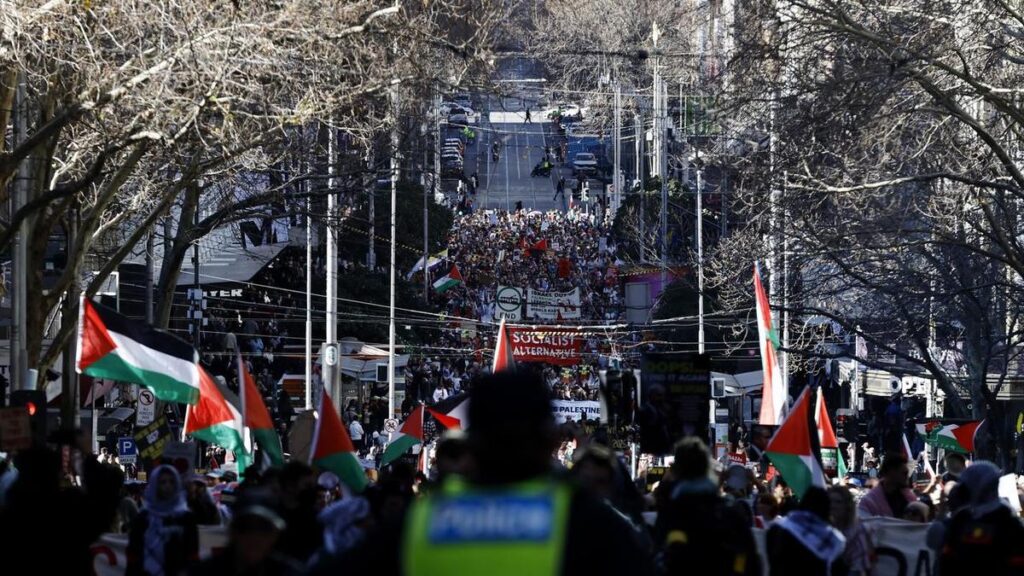
Dozens of laws limiting the rights of protesters in Australia have ignited a call for federal protections. In response to recent actions by the New South Wales (NSW) Police, which attempted to obstruct a large pro-Palestine march across the Harbour Bridge, Greens Senator David Shoebridge is advocating for legislation that would secure the right to protest.
Senator Shoebridge criticized the police’s overreach, stating that they used public safety exceptions to effectively criminalize road closures in Sydney. He pointed out that while the crime of disrupting traffic generally carries a minor penalty, disrupting traffic during a protest can result in up to seven years in prison. “If you want a classic example, the crime of disrupting traffic in NSW carries a very modest offence but the crime of disrupting traffic because you’re at a protest can see you in jail for seven years,” he remarked to reporters in Canberra on March 15, 2023.
Senator Shoebridge’s proposed bill aims to balance the need for public safety with the right to protest, preventing states from imposing unreasonable or disproportionate restrictions. However, the bill faces significant hurdles, as it requires government support to pass through parliament.
Criticism of police actions has resonated with many activists. Hannah Thomas, a former Greens staffer and candidate, expressed her concerns after being charged during a protest in June 2022, where she suffered an eye injury. She was charged with hindering police and failing to comply with a move-on direction during an allegedly unauthorized demonstration in Sydney’s southwest. “That violence did not happen in a vacuum; it was the direct and foreseeable result of the Labor government’s draconian anti-protest laws,” she stated alongside Senator Shoebridge. Thomas emphasized the ongoing impact of these laws on her life, including lasting trauma and visual impairment.
Human rights advocates have also raised alarms about the increasing number of anti-protest laws across Australia. David Mejia-Canales, a senior lawyer at the Human Rights Law Centre, described the existence of approximately 31 anti-protest laws implemented nationwide over the last two decades as “preposterous in a democracy.” He noted that protests have historically played a critical role in advancing social justice in Australia, from advocating for First Nations land rights to securing votes for women and establishing the eight-hour workday.
The trend of increasing police repression of protests is alarming, according to Saffron Zomer, executive director of the Australian Democracy Network. She highlighted that the rate of protesters being imprisoned has surged tenfold since 2020. “Governments are devoting more resources to regressive policing, including pre-emptive police visits, banning people from associating with groups, and carrying out mass surveillance for protest movements,” Zomer said.
The push for federal protections underscores a growing discontent with how authorities manage public demonstrations in Australia. As these events unfold, the future of protest rights remains a significant concern for many in the nation.







